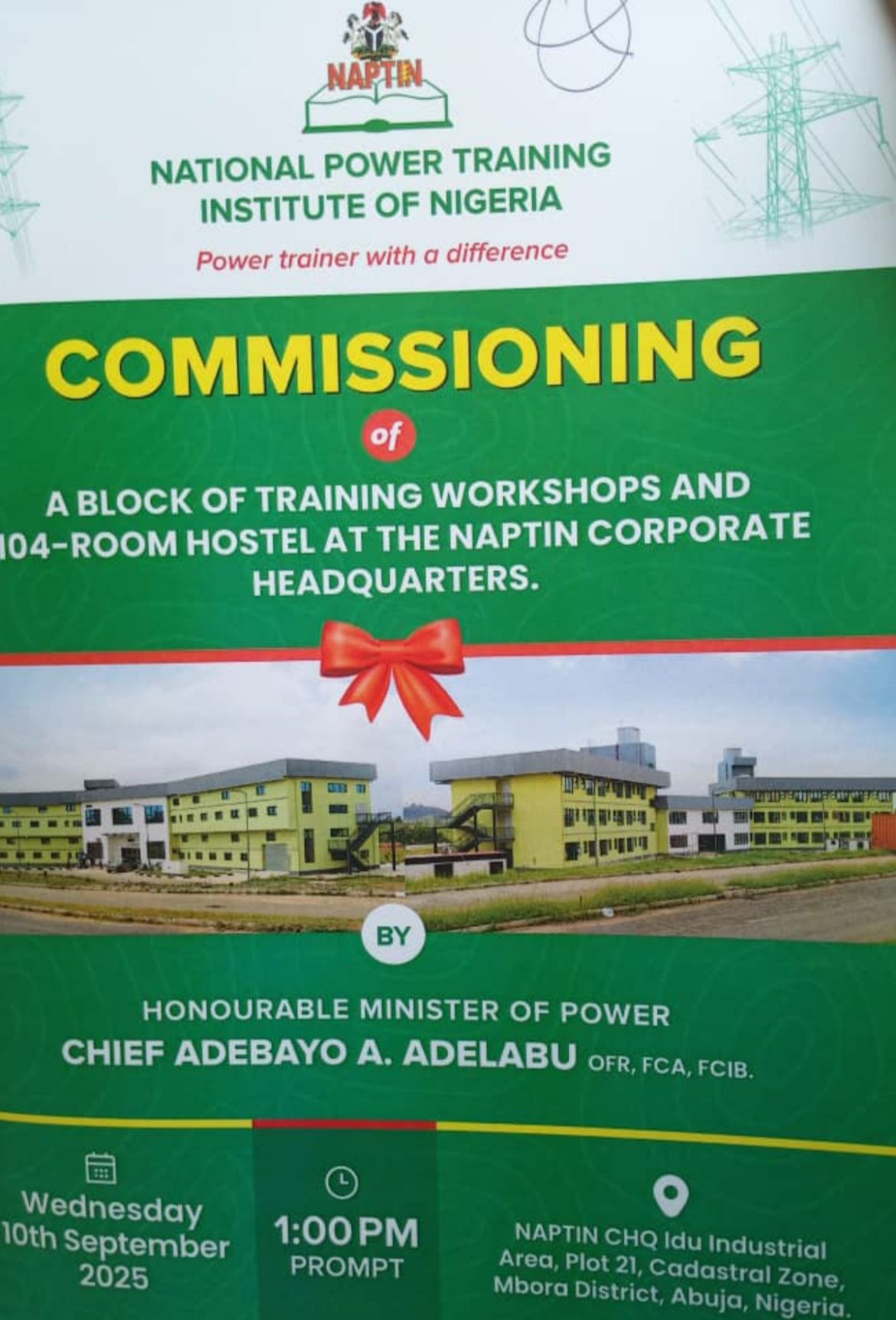The European Union (EU) and France Government have reaffirmed their commitment in investment to support Nigeria Government towards achieving sustainable power and youth development.
The developmental partners reiterated the commitment at the inauguration of the newly built training workshops and 104-room hostel at the National Power Training Institute of Nigeria (NAPTIN) in Abuja on Wednesday.
Mr Gautier Mignot, EU Ambassador to Nigeria, said that the EU had committed an 8 million euros grant to the project to support the success of Nigeria’s power sector reforms.
Mignot said that by contributing to provide a skilled workforce and building capacity, the EU wanted to help drive economic development, create jobs and improve the well-being of the Nigeria population.
“Our support to the project is focused on two main areas. The first is the curricular development, creating long-term training resources.
“The other is corporate development, establishing new policies and procedures to enhance NAPTIN’s capacity to build sustainable relationships within the industry and promote innovation,” he said.
Mignot said that the EU had supported NAPTIN to develop 95 courses with comprehensive training of trainers programme in alignment with the power sector skills requirements.
These according to him include 65 new technical courses and 30 non-technical courses.
“Under the corporate development, our support focused on analysing NAPTIN’s customer management process to identify opportunities for improvement and also initiated a new marketing process to increase awareness of the institution’s offerings,” he said.
He described the project as a very good example of the three main features of EU global gateway investment strategy, to promote skilled workforce in the power sector.
He said that EU had been an important partner in Nigeria’s power sector since 2008, investing more than 200 million euros in grants.
He said that the projects were focused on policy, regulation, building the capacity of market participants and facilitating access to finance for both public and private sectors.
“Supporting the power sector is not only about building power plants, power stations, transmission lines, it’s also about all these dimensions to strengthen the sector.
“Our latest renewable energy package for Nigeria, worth approximately 100 million euros, is designed to support access to clean energy through innovative financing, technical assistance, and new infrastructure.
“And the goal is to add 400 megawatts of new renewable energy capacity by 2027, benefiting over five million Nigerians,” he said.
On his part, Marc Fonbaustier, Ambassador of France to Nigeria and ECOWAS, said that his country was proud to be a partner in the significant milestone in the NAPTIN vocational training in the Energy Sector project.
Fonbaustier said that for over a decade, France had supported Nigeria’s energy sector through the Agence Française de Developpement (AFD), committing over 300 million euros to large infrastructure investments.
He added that France had also contributed to the development of higher education and vocational training in Nigeria with total commitments of about 300 million euros.
”At the crossroads of the energy and education sectors, the NAPTIN project reflects France’s commitment to helping Nigeria achieve universal access to electricity and to expand opportunities for youth employment.
“First, by establishing the necessary infrastructure and training platforms, the project enables NAPTIN to produce a pipeline of qualified engineers, technicians, and operators across Nigeria.
“More than 100 individuals can be trained simultaneously, and 104 rooms have been made available for accommodation.
“Second, this project aims to enhance youth employment and promote job creation by equipping young Nigerians with skills that meet the demands of the labour market.
“By strengthening the link between training and employment, it improves job prospects, promotes economic inclusion, and reduces youth vulnerability.
“This reflects a core commitment by France to support sustainable opportunities for Nigeria’s youth,” he said.
Fonbaustier said that the imagination of the project symbolised France deepening partnership and continued commitment to supporting Nigeria on its path to be inclusive and sustainable development in the energy sector.
He said that the selection of a French company, Schneider Electric, to provide technical assistance for the project, in terms of developing training courses with NAPTIN exemplified the value of Nigeria and France bilateral cooperation.
“Our partnership is rooted in the shared belief that vocational training is not only a right but also a powerful driver of equity, opportunity, and sustainable growth.
“This project embodies what we are trying to achieve through our partnership with Nigeria.
“Thinking long term, empowering, helping the country equip itself with the tools it needs to become more self-reliant and meet the basic needs of its population,” he said
NEWS AGENCY OF NIGERIA

